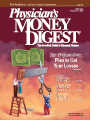Set Your Investor Sights Beyond the Sea
BusinessWeek
Determining the right investmentvehicles in today's uncertain economicenvironment can be challenging.Making those same determinations withrespect to overseas markets can bedownright scary. However, according to, moderate foreign equityexposure is an important dimension of awell-diversified portfolio.
INTERNATIONAL INVESTING
The US dollar, which appreciated substantiallyduring the latter part of the1990s, has begun to slide against theeuro and the Japanese yen, as well asother major currencies. This being thecase, foreign market options (eg, Asianand European equities that offer lowervaluations than comparable US equities)have become quite attractive to globalmoney managers.
Of course, there's no guarantee thatthe dollar will continue to weaken or thatforeign markets will continue their presentgrowth. But it does indicate that witha well-researched strategy, a diversifiedportfolio that includes overseas exposurecan be a valuable asset. Physician-investorslooking for 1-stop international diversification should consider foreign stock funds.
These funds invest in a range of non-USmarkets. A few examples of broadly diversifiedforeign stock funds available todayinclude: Artisan International (800-344-1770), Fidelity Diversified International(800-343-3548), Harbor International (800-422-1050), T. Rowe Price InternationalStock (800-638-5660), and Vanguard InternationalGrowth (800-635-1511).
Warning:
When considering foreign stock fundsit's important to check the percentage ofassets allocated to individual countries.For example, in the 1980s most fundswith a dominant stake in Japan did well,as the Nikkei index reached an all-timehigh. However, the index has plummetedsince then. So, you don't want to put allyour eggs in 1 basket. In addition, youmight want to steer clear of global stockfunds, which usually contain both foreignand US stocks (sometimes more than50% US). If your goal is todiversify into overseas markets, a globalstock fund might detract from your goal.
OTHER GLOBAL OPTIONS
Another option for physician-investorsinterested in international actionis exchange-traded funds. Exchange-tradedfunds are a fairly new commodity.The funds, also called iShares, aretypically index-based equity portfoliosthat trade like a stock. When thinkinginternationally, there are 2 types offunds to consider: single-country fundsand multicountry funds.
Single-country funds, as their nameimplies, target 1 country's stock market.This can be a tempting strategy when acountry is experiencing a red-hot market.However, the fund's narrow focuscan severely hurt a portfolio when thered-hot market plunges. In addition, it'snot that easy to judge which country'smarket is going to soar next. Look howdifficult it is to time the US market.
Multicountry funds, as their namealso implies, share the wealth—or risk,depending on the case. The MorganStanley Capital International (MSCI)EAFE Index is perhaps the least expensiveand most diversified exchange-tradedfund today (3.9 billion iShares).EAFE is an acronym for Europe,Australasia, and the Far East. This 784-stock portfolio is very popular and byfar the largest of the internationalexchange-traded funds.
BusinessWeek
If you're investing with a long timehorizon and plan to add money to yourinvestment on a regular basis, you maywant to consider a regular EAFE indexmutual fund. If this is the case, check outthe Vanguard Developed Markets Indexand the Fidelity Spartan International,which feature low transaction costs. Forthe broadest foreign stock exposure,recommends the VanguardTotal International Stock Index.
This Index invests in Vanguard'sEuropean, Pacific, and emerging markets'stock index funds. In addition, the$1.1 billion, 498-stock Vanguard EmergingMarkets Stock Index offers pureexposure to the world's top liquid developingmarkets, based on a customizedindex. Its 5 top country weightings areMexico, Korea, South Africa, Brazil, andGreece.
